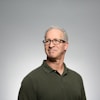
Margaret Sullivan; July 2, 2024 — Mrs.Sulivan was compensated for her endorsement and has given consent to use imagery.
Margaret Sullivan, 71, was tending to her beloved rose garden last July when everything suddenly went dark. "One minute I was pruning my flowers, the next I was on the ground with my neighbor standing over me calling 911," she recalls. "I never felt it coming. No warning signs, no dizziness—just blackout."
Margaret had suffered heat syncope—a dangerous fainting episode caused by overheating. She was hospitalized for three days and now lives with her daughter, having lost the independence she cherished.
"My doctor explained that as we age, our bodies can't regulate temperature like they used to," Margaret says. "What used to be just an uncomfortable hot day is now potentially deadly for people like me."
Why Seniors Face a Hidden Deadly Threat This Summer
Medical experts are issuing urgent warnings as climate data shows Summer 2025 is projected to be the hottest on record, with unprecedented heat waves expected across the country.
"The general public doesn't realize that for adults over 65, heat isn't just uncomfortable—it's potentially fatal," explains Dr. Elena Vasquez, geriatric specialist at National Senior Health Institute. "The physiological changes that occur with aging fundamentally alter how the body responds to heat."
Research has identified several critical factors that make heat particularly dangerous for seniors:
Your Body Has Changed More Than You Realize
Reduced sweat production: As we age, our sweat glands become less efficient, decreasing by up to 70% compared to younger adults.
"Most seniors don't realize their primary cooling system—sweating—isn't working properly anymore," notes Dr. Vasquez. "This isn't a minor inconvenience; it's a fundamental safety concern."
Compromised blood circulation: Aging blood vessels don't dilate as effectively to release heat, trapping warmth inside the body.
Medication interference: Common prescriptions for blood pressure, heart conditions, and other age-related conditions can severely hinder the body's natural cooling processes.
"Many seniors take multiple medications that unintentionally sabotage their body's ability to cool itself," explains Dr. Howard Chen, pharmacologist at Central Medical University. "It's a dangerous combination that most people aren't aware of until it's too late."
The Alarming Rise in Senior Heat-Related Deaths
The CDC reports that heat-related deaths among Americans over 65 have increased by 53% in the past decade. More concerning still, 2024 saw the highest number of senior heat fatalities on record—a trend experts predict will worsen with 2025's extreme weather patterns.

"What makes this particularly tragic is that many seniors don't recognize they're in danger until it's too late," says Dr. Vasquez. "The warning signs—dizziness, confusion, fatigue—are often attributed to 'just getting older' when they're actually urgent signals of heat stress."
Why Your Current Cooling Methods May Be Failing You
If you think air conditioning and fans are keeping you safe, medical experts have concerning news.
"Air conditioning is effective, but most seniors don't use it consistently or properly," explains Dr. Chen. "They turn it off to save money, don't set it cold enough out of comfort concerns, or can't remain in air-conditioned spaces throughout their daily activities."
Even more troubling is the widespread misconception about fans.
"Standard fans can actually be dangerous for seniors in extreme heat," warns Dr. Vasquez. "When temperatures exceed 95°F, fans simply circulate hot air without cooling the body. For older adults with compromised cooling systems, this creates a false sense of comfort while their core temperature continues rising to dangerous levels."
Laura Jennings, 68, learned this lesson the hard way. "I sat in front of my fan all day during last summer's heat wave, feeling the air on my skin. I thought I was fine until my daughter found me confused and unable to form sentences. My internal temperature was 103.5°F."
The Problem With Traditional Cooling Products
Standard cooling options present several issues specifically for seniors:
- Cooling towels become ineffective within minutes in humidity and require constant rewetting
- Hand-held fans require constant effort and aren't practical for extended use
- Ice packs create uncomfortable extreme cold against sensitive skin and cause condensation
- Mini neck fans designed for younger users have proven too heavy, complicated, or poorly designed for senior needs
"Most cooling products on the market were never designed with seniors' unique physiological needs in mind," notes Dr. Chen. "They were created for younger adults with fully functioning temperature regulation systems."
When Independence Hangs in the Balance
For many seniors, the consequences of heat sensitivity extend far beyond physical discomfort. A recent survey of adults over 65 found that 72% have restricted their outdoor activities due to heat concerns, leading to:
- Decreased social interaction
- Reduced physical activity
- Loss of hobbies and meaningful routines
- Increased dependence on family members
- Growing isolation and potential depression
"What we're seeing is heat literally stealing seniors' independence," says Dr. Vasquez. "When people can't safely go outside, tend their gardens, visit friends, or walk to local shops, they lose the very activities that keep them vibrant and healthy."
Dorothy Williams, 74, describes this loss poignantly: "I used to walk to church every Sunday and stop at the café afterward with friends. Now I'm afraid to walk even two blocks in summer. My world has gotten smaller, and I feel like less of myself."
A Breakthrough Discovery for Senior Safety
After years of research into the unique cooling needs of older adults, medical engineers have developed a revolutionary solution specifically for seniors facing dangerous heat conditions.

Introducing BreezyBand™
The BreezyBand™ Neuro Cooling Device is the first wearable cooling technology designed exclusively for the physiological needs of adults over 65. Unlike standard neck fans created for younger users, BreezyBand™ works differently.
"We've been studying how cooling technology affects different age groups for over a decade," explains Dr. Sarah Mitchell, thermal regulation specialist. "The breakthrough came when we realized seniors need cooling directed at specific neuro cooling zones—areas where blood vessels are closest to the skin surface."
The patented BreezyBand™ technology targets these critical zones with a safe, bladeless cooling system that creates a continuous microclimate around the neck and upper shoulders—areas research has identified as most effective for regulating core body temperature in older adults.
What Makes BreezyBand™ Different from Regular Cooling Products
Most seniors have tried various cooling methods with limited success. Margaret, who we met earlier, had purchased three different neck fans before her heat-related collapse.

"Those other devices were clearly made for younger people," she explains. "They were heavy, complicated to operate, and honestly didn't provide much cooling. I thought all neck fans were just gimmicks."
BreezyBand™ was engineered specifically to overcome the limitations of standard cooling products:
- Bladeless Design: Eliminates the safety risk of hair or clothing entanglement
- Whisper-Quiet Operation: Works below 30 decibels—essential for seniors with hearing sensitivity
- Ultra-Lightweight Construction: Weighs under 4 ounces to prevent neck strain
- Single-Button Operation: Designed for arthritic hands and simplified use
- Extended 9-Hour Battery Life: Lasts an entire day on a single charge
- Enhanced Airflow Technology: Creates a cooling envelope that significantly lowers body temperature
"What impresses me most about BreezyBand™ is how it's designed with senior anatomy and abilities in mind," says Dr. Vasquez. "It's not just a standard neck fan with modified marketing—it's engineered from the ground up for older adults."
"I Can Go Outside Again": Real Stories from Seniors Using BreezyBand™
Since BreezyBand™ became available to medical professionals for testing last year, thousands of seniors have experienced its benefits. Their stories reveal how proper cooling technology can restore independence and joy.
Before

After Just 6 Minutes

Charles Peterson, 76, California: "I was a gardener my whole life until the heat became too dangerous. My doctor recommended BreezyBand™, and I've been able to tend my vegetables again every morning. It's not just about the gardening—it's about feeling like myself again."
Elaine McCoy, 70, Arizona: "After my heat stroke last summer, my children wanted me to move into assisted living where they had central air. I was devastated at losing my independence. My geriatric specialist suggested BreezyBand™, and I've been safely living in my own home through this entire hot season. My children have peace of mind, and I have my freedom."
Robert Jenkins, 82, Florida: "I was skeptical of any gadget claiming to keep seniors cool. I've tried cooling towels, portable fans, even those gel cooling packs. Nothing worked well enough to let me walk my dog during the day. BreezyBand™ is the only device that's made a real difference. I can feel it actually cooling my body, not just moving hot air around."
The Science Behind BreezyBand™
The effectiveness of BreezyBand™ for older adults is based on multiple peer-reviewed studies on thermoregulation in aging populations.

"As we age, the body's cooling systems become significantly less efficient," explains Dr. Chen. "BreezyBand™ works by supplementing these natural systems, targeting the carotid arteries and major blood vessels in the neck to cool blood as it flows to the brain."
This approach is particularly effective for seniors because:
- It cools the blood directly, bypassing the compromised sweating response
- It focuses on the neck, where cooling has the greatest impact on core temperature
- It provides consistent cooling without requiring physical effort or constant adjustment
In clinical testing with adults over 65, BreezyBand™ users showed an average decrease in heat-related symptoms of 78% compared to those using standard cooling methods during the same heat conditions.
More Than a Comfort Device: A Medical Necessity
Unlike traditional fans or cooling products marketed for comfort, BreezyBand™ was developed as a medical-grade solution to a serious health threat.
"We need to shift our thinking about cooling for seniors," says Dr. Vasquez. "This isn't about comfort or preference—it's about preventing hospitalization, maintaining independence, and potentially saving lives."
The CDC now recommends that adults over 65 use specialized cooling devices during heat advisories, particularly those taking medications like:
- Beta-blockers
- Antihistamines
- Antipsychotics
- Diuretics
- Anticholinergics
"If you're taking any of these common medications, your risk of heat-related illness increases substantially," warns Dr. Mitchell. "Standard cooling methods are simply inadequate for your specific needs."
Why This Summer Demands Immediate Action
Climate scientists have issued dire warnings about Summer 2025, with predicted temperature records that will put vulnerable populations at unprecedented risk.

The Dangerous Reality is Already Here
We don't need to wait for summer to see the danger. Just days ago, on May 11th, 2025, an alarming "mini heat wave" hit Southern California, causing dozens of heat-related emergencies despite summer being weeks away.
According to officials and a report by the Los Angeles Times, Saturday alone saw 15 heat-related rescues in Orange County and nine in Riverside County. One rescue involved a 55-year-old who required immediate hospitalization due to severe heat illness.
As reported by KTLA News, "Saturday alone saw 15 heat-related rescues in Orange County and nine in Riverside County. One of the rescues was caught on video by the O.C. Fire Authority."
The most alarming aspect? This occurred in spring, not during peak summer months.
"We're entering uncharted territory with these heat projections," explains Dr. James Wilson, climate health researcher at National Weather Institute. "The elderly population needs to prepare differently this year than ever before."
For seniors who value their independence, the message from medical experts is clear: traditional cooling methods that might have been sufficient in the past will not provide adequate protection this summer.
Staying Home Won't Be Enough

Many seniors believe staying indoors with air conditioning will keep them safe. Unfortunately, extreme heat poses another serious threat: power grid failures.
When temperatures overwhelm the electrical grid, it means extremely hot weather is causing power demand to exceed what the grid can handle:
- During heatwaves, millions of air conditioners running simultaneously create massive spikes in electricity demand
- Power transformers, lines, and substations can overheat and fail under extreme temperatures and high load
- The result is often rolling blackouts or brownouts—leaving vulnerable seniors without air conditioning during the hottest conditions
This means even those who plan to stay indoors need a backup cooling solution that doesn't depend on the power grid—making personal cooling technology like BreezyBand™ not just convenient, but potentially life-saving.
"The choice many seniors are facing is stark," says Dr. Vasquez. "Either find effective personal cooling technology, stay permanently indoors with air conditioning, or risk potentially fatal heat exposure."
How to Get BreezyBand™
Due to unprecedented demand before this summer's predicted heat waves, BreezyBand™ supplies are limited.
The manufacturer has partnered with the National Senior Safety Alliance to make this device available directly to the public without requiring a doctor's prescription.
"We believe this technology should be accessible to every senior who needs it," says William Hayes, director of the Alliance. "That's why we've worked to make it available without the delays of medical bureaucracy."
Seniors and their caregivers can secure a BreezyBand™ by visiting:
BreezyBand.comA Final Word from Dr. Franklin
As the senior medical correspondent for the National Health Journal, I've reported on countless health threats to our aging population. Few concerns are as immediate and serious as the coming summer heat.
For those over 65, the question isn't whether you'll feel uncomfortably warm—it's whether your body can safely regulate temperature during extreme heat events.
The physiological changes that come with aging aren't matters of opinion or speculation—they're medical facts that require appropriate responses. This summer, please take the heat warnings seriously and consider technologies specifically designed for your safety.
Your independence, quality of life, and potentially your survival may depend on it.
Dr. M. Franklin has been reporting on geriatric health issues for over 25 years. He holds positions at Central Medical University and serves as an advisor to the National Institute on Aging.






